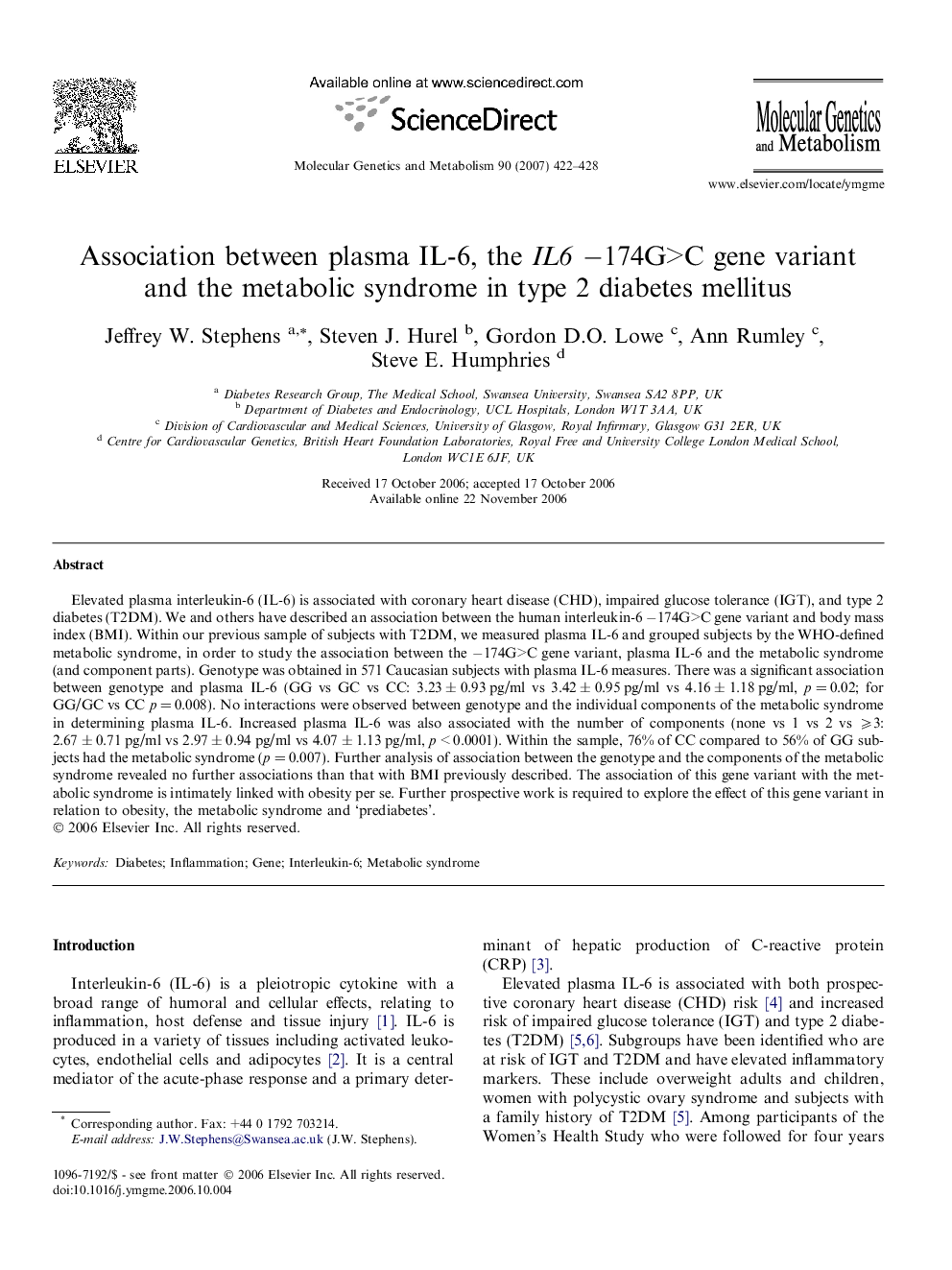| Article ID | Journal | Published Year | Pages | File Type |
|---|---|---|---|---|
| 2000323 | Molecular Genetics and Metabolism | 2007 | 7 Pages |
Elevated plasma interleukin-6 (IL-6) is associated with coronary heart disease (CHD), impaired glucose tolerance (IGT), and type 2 diabetes (T2DM). We and others have described an association between the human interleukin-6 −174G>C gene variant and body mass index (BMI). Within our previous sample of subjects with T2DM, we measured plasma IL-6 and grouped subjects by the WHO-defined metabolic syndrome, in order to study the association between the −174G>C gene variant, plasma IL-6 and the metabolic syndrome (and component parts). Genotype was obtained in 571 Caucasian subjects with plasma IL-6 measures. There was a significant association between genotype and plasma IL-6 (GG vs GC vs CC: 3.23 ± 0.93 pg/ml vs 3.42 ± 0.95 pg/ml vs 4.16 ± 1.18 pg/ml, p = 0.02; for GG/GC vs CC p = 0.008). No interactions were observed between genotype and the individual components of the metabolic syndrome in determining plasma IL-6. Increased plasma IL-6 was also associated with the number of components (none vs 1 vs 2 vs ⩾3: 2.67 ± 0.71 pg/ml vs 2.97 ± 0.94 pg/ml vs 4.07 ± 1.13 pg/ml, p < 0.0001). Within the sample, 76% of CC compared to 56% of GG subjects had the metabolic syndrome (p = 0.007). Further analysis of association between the genotype and the components of the metabolic syndrome revealed no further associations than that with BMI previously described. The association of this gene variant with the metabolic syndrome is intimately linked with obesity per se. Further prospective work is required to explore the effect of this gene variant in relation to obesity, the metabolic syndrome and ‘prediabetes’.
